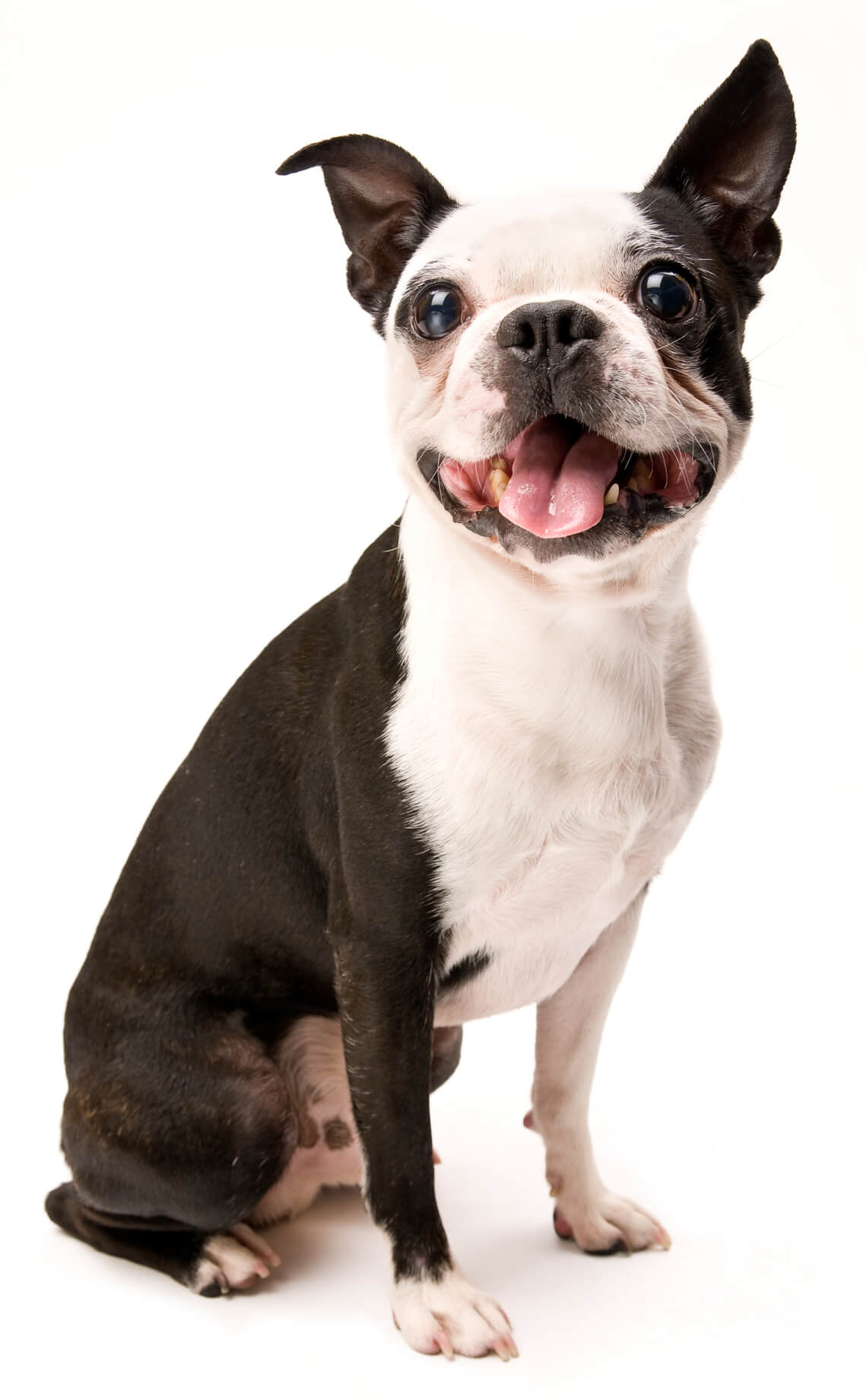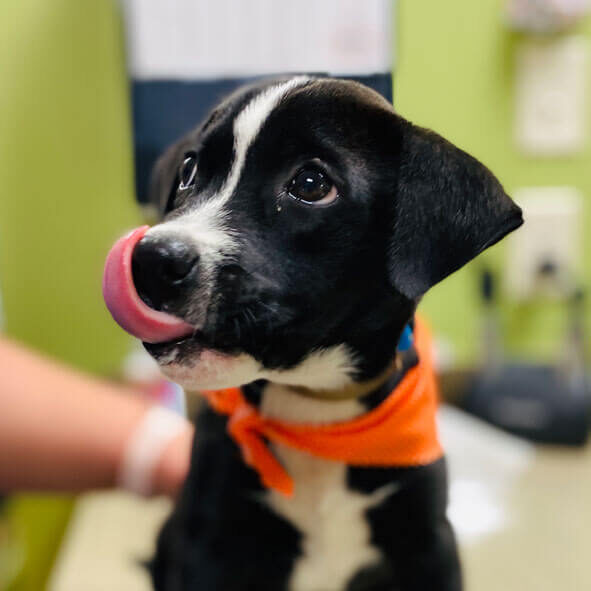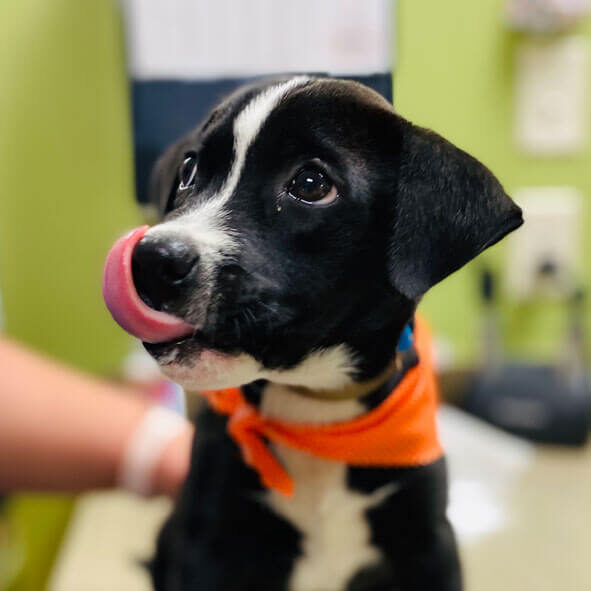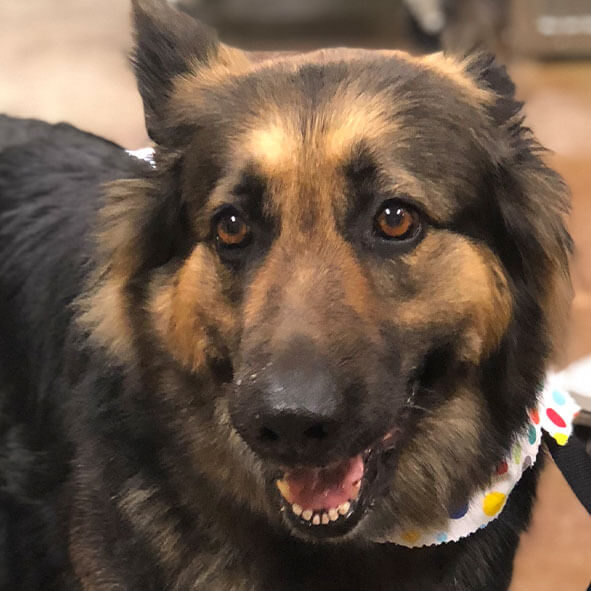Proper Dental Health Can Extend Your Pet’s Life by Up to Four Years

Dr. Heath is a believer in science, and she believes in good scientific studies. In a 50-year retro study by Purina and Banfield Animal Hospital, Purina looked at all of Banfield’s medical records of dogs and cats with the greatest longevity to see what contributed to that longevity. Was it anything that pet owners or veterinarians could control, or could veterinarians and pet owners control any of the factors that caused the premature deaths of the other pets?
We know we cannot control genetics, cancer, and/or trauma/accidents, under which most premature deaths fall. But Purina did find two distinct health issues that pet owners and veterinarians working together could control and eliminate in the life of the pet. These two factors were healthy weight and healthy teeth.
In reviewing 50 years of medical charts for dogs and cats, Purina found that those with healthy weights and healthy teeth lived two to four years longer than those dogs and cats that did not have a healthy weight or healthy teeth. This was a groundbreaking study! Two to four more years with our pets just by avoiding obesity and maintaining good oral hygiene. Dr. Heath says “We don’t have long enough with our pets as it is; and there are many things I can’t control. But if a healthy weight and a healthy mouth even “may” give me two to four more years with my fur baby, Munkee, then I am going to do everything I personally can to see that she is a healthy weight and that she has clean teeth. Even though she hates having her teeth brushed. We are going to do it, so that she can live as long as possible barring genetics, cancer, and/or an accident.”
Good dental hygiene leads to better health. Call (252) 524-3384 to schedule an appointment!

Some Breeds are More Prone to Dental Disease than Others
After the pediatric formative years are over and your pet has moved into adulthood, your fur baby’s teeth and gums will be evaluated at every exam. And even with the best at-home care, there will be a day when your pet needs a professional dental cleaning. When this is needed in your pet’s life depends on a couple factors; genetics (a key factor) and oral health care at home.
Despite what many people believe and even some veterinarians still say, tartar and gingivitis are not caused by what kind of food your pet eats. Such as the myth that “I should not feed my cat wet food, because it will cause tooth decay.” This is not true. Small and toy breed dogs, such as Yorkies and Poodles, along with all breeds of cats, have the highest genetic prevalence for dental disease than any other dog breed. Studies have actually shown that it is better to feed your cat an all can/wet diet, if possible, because their number one cause of death is chronic kidney failure. Cats need as much water consumption as possible to keep their kidneys operating in the best shape possible, for as long as possible.

Pet Dental Procedures at Our Hospital
What can you and your pet expect at your pet’s dental procedure? Here is a general overview of the process, which may vary based on your needs, and your pet’s.
First, you will check in with our Client Service Representative and either she or our Veterinary Nurse will go over all the necessary surgical forms with you, and have you sign them and provide us with the best number to reach you during the day and which method of communication works best (text, call, chat through our app, etc.). We know that you are nervous about leaving your baby with us and the fact that your pet will have anesthesia; therefore it is very important that we have a viable way to reach you to stay in contact throughout the day and give you updates as the dental procedure progresses along. The CSR and/or Nurse will also address any budgetary concerns you have.
A pet dental procedure is a fluid operation. Even with the very best treatment plans (health care estimates) in place, things sometimes change once the mouth is fully opened under anesthesia and every tooth is probed for its viability, mobility, root exposure, etc. Only then can we give you a truly accurate estimate of what treatment options are best for your pet’s current dental needs, an estimate of how long that should take Dr. Heath and her team to accomplish, and finally, an estimate of the cost of that treatment. And again, there can still be changes as the procedure continues. This is because your pet’s well-being is always at the forefront of Dr. Heath’s mind, and therefore, sometimes not all dental procedures can be done in one dental anesthetic event. Instead, they may need to be spaced out over two or more separate appointments, mainly for optimal pain management and to ensure that your pet never stops eating.
Also, there can be changes simply based on how your pet responds to anesthesia or to pain. Some pets need only one to two pain medication modalities to control pre- and post-dental extraction pain. Other pets may require all pain management modalities including nerve blocks, opioids, NSAIDS, topicals, soft tissue laser therapy, etc. Therefore, the cost of dental procedures for pets vary widely, from a routine cleaning to a more complex procedure involving multiple tooth extractions with nerve blocks, sectioning of the teeth, root canals, sealants, etc.
Preparing Your Pet for a Safe Dental Procedure
After the paperwork is complete and you have left your pet with us; we will check your pet’s weight in our treatment area and give them a temporary ID collar. They will then be placed in an appropriately sized cage or glass run with a blanket or bed.
Next, your companion is given a special premedication to both calm their nerves and provide presurgical/dental pain medication. Dr.Heath calculates this medication cocktail based on the individual needs and health concerns of each pet. If your pet sees us for a dental, then Dr.Heath has already done a complete physical exam prior to that morning; she will, however, listen to your pet’s heart and lungs again to make sure that nothing has changed in the interim.
Next, a comprehensive blood panel will be drawn and run by our Veterinary Nursing staff at Faithful Friends. We only use the safest anesthetic protocols in adherence to AVMA, AHAA, and NC State Cardiology Service anesthetic protocols for cardiology patients. We provide a safe and innovative way to clean your pet’s teeth by using an ultrasonic scaling system, all while your baby is sound asleep under general anesthesia and carefully monitored by our skilled and knowledgeable veterinary staff. Post-dental care will continue with maintaining those beautiful pearly whites by finding the best options for your pet.
We strive to make you and your pet’s visits as stress-free and pain-free as possible. Thank you for entrusting us with all their dental care needs!
Maintaining your pet’s oral hygiene at home can limit the number of teeth cleanings they’ll need during their lifetime.
Call (252) 524-3384 to learn more!

